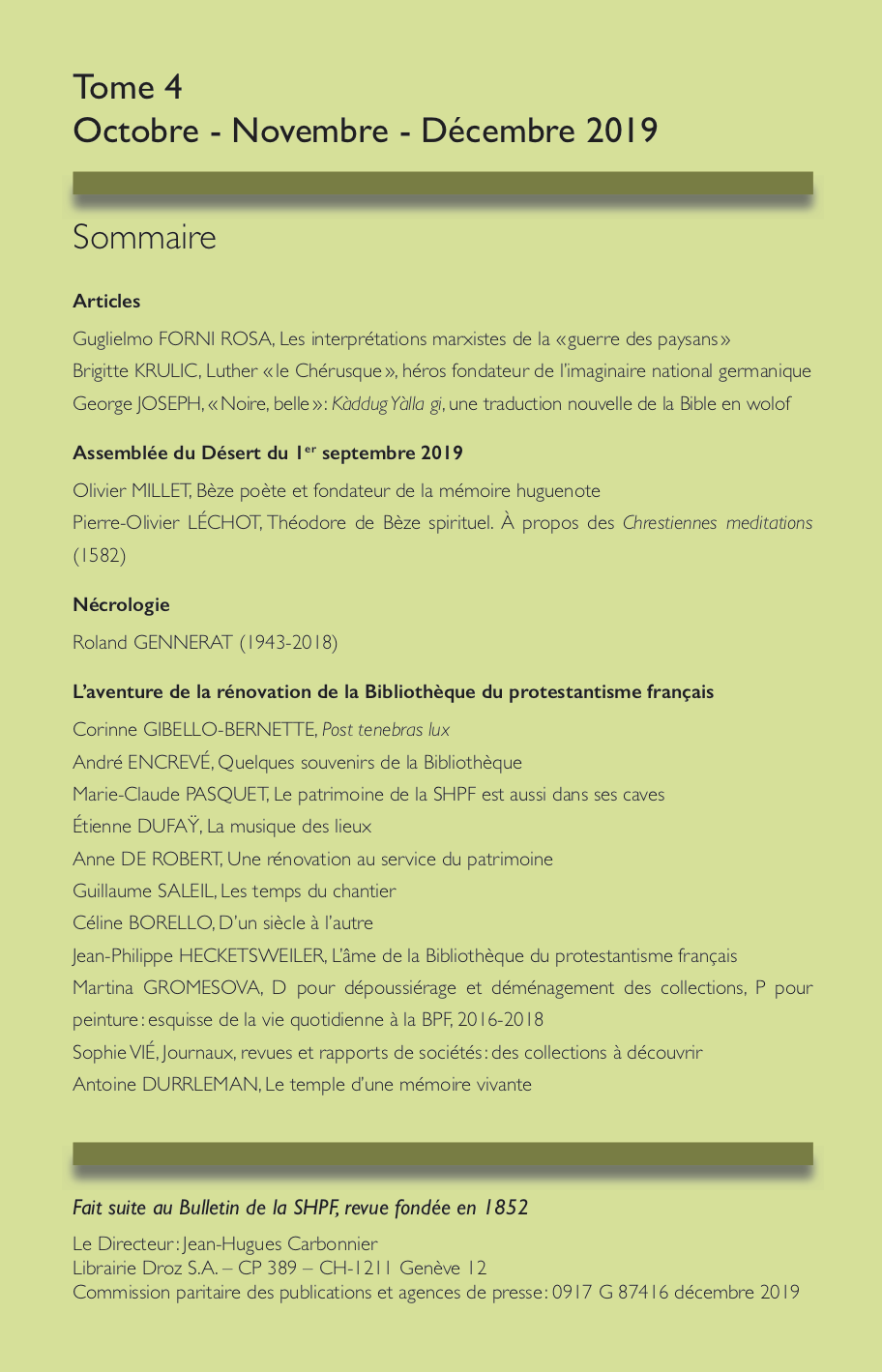Les interprétations marxistes de la « guerre des paysans »
Abstract
The history which comprises the subject of the present article does not begin in 1517 (when Luther nailed his theses to the door of the Church of Wittenberg Castle), nor in 1515 (Battle of Frankenhausen), but in 1848 or rather 1850 when, in the context of Marxism, consideration was given to the failure of the 1848 Revolution. Attention was also paid to certain structural analogies which go back further in the past to the only revolution to take place in Germany: the Peasants’ War of 1525. Thus, rather than examining the case of Thomas Müntzer within the framework of the Protestant Reformation, or how his links with Luther developed, we concentrate on the discussion that was initiated by Engels’s small book and continued into the first half of the twentieth century in the work of Ernst Bloch and Georg Lukács. The first part of the article focuses entirely on Engels, showing that the relationship between the structure and superstructure did not develop in a single direction (reciprocal implication, see Max Weber); there were also socialist sources (Zimmermann, Weill) underpinning Engels’s output. Next we interrogate the problem of the Marxist nature of the interpretation of Bloch; according to Lukács, who emphasizes the role of Hegel (and thus of dialectic), Bloch is to be linked to the thinking of Kant who, according to Lukács, is the most important thinker of the bourgeoisie. The article then goes on to consider the relationship between historical or philosophical texts and literary texts, namely Goethe’s plays/theatrical output (Goetz von Berlichingen, 1773) or Lassalle (Franz von Sickingen, 1859) and Kleist’s novel Michael Kohlhaas, 1810.
